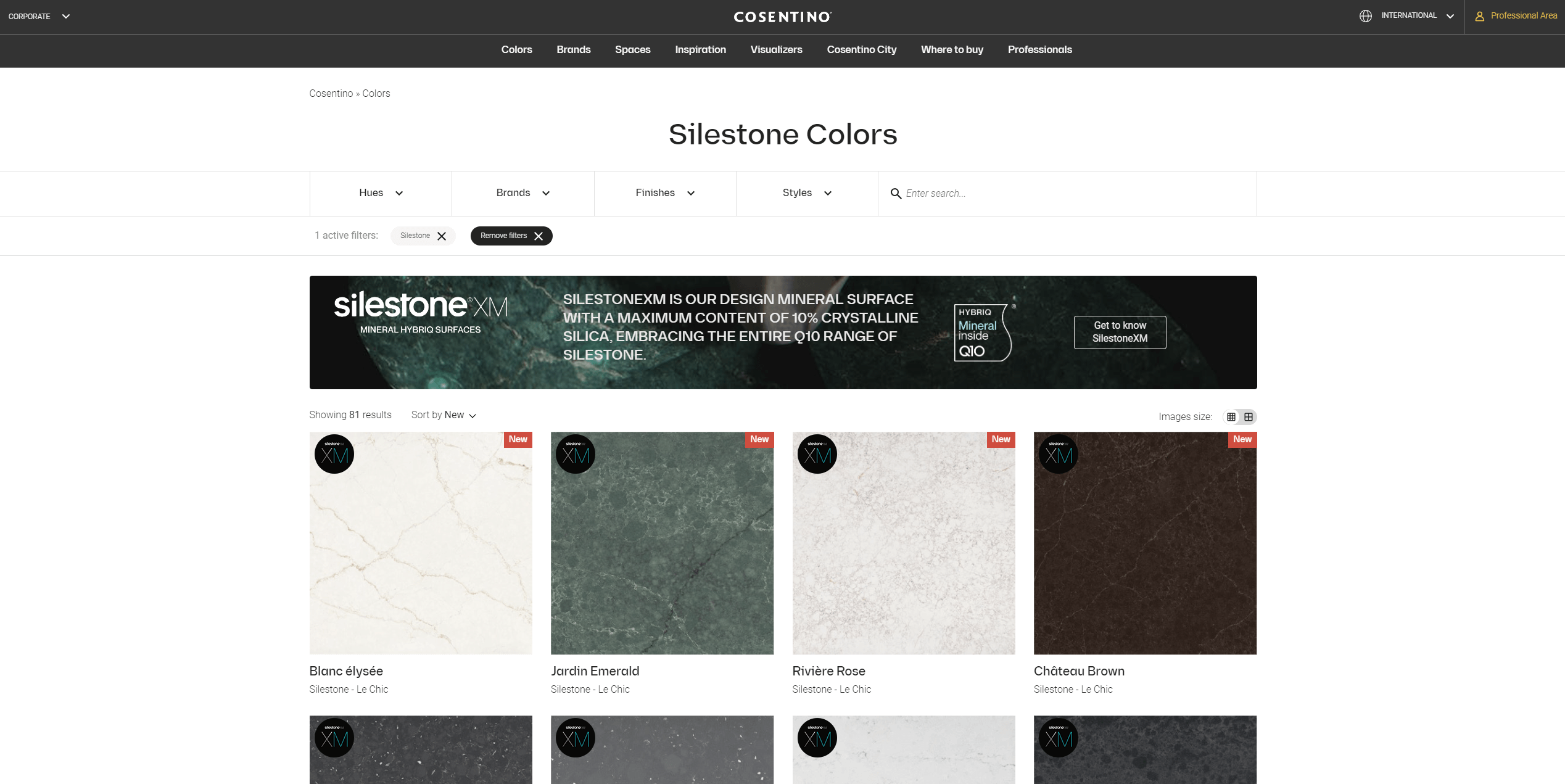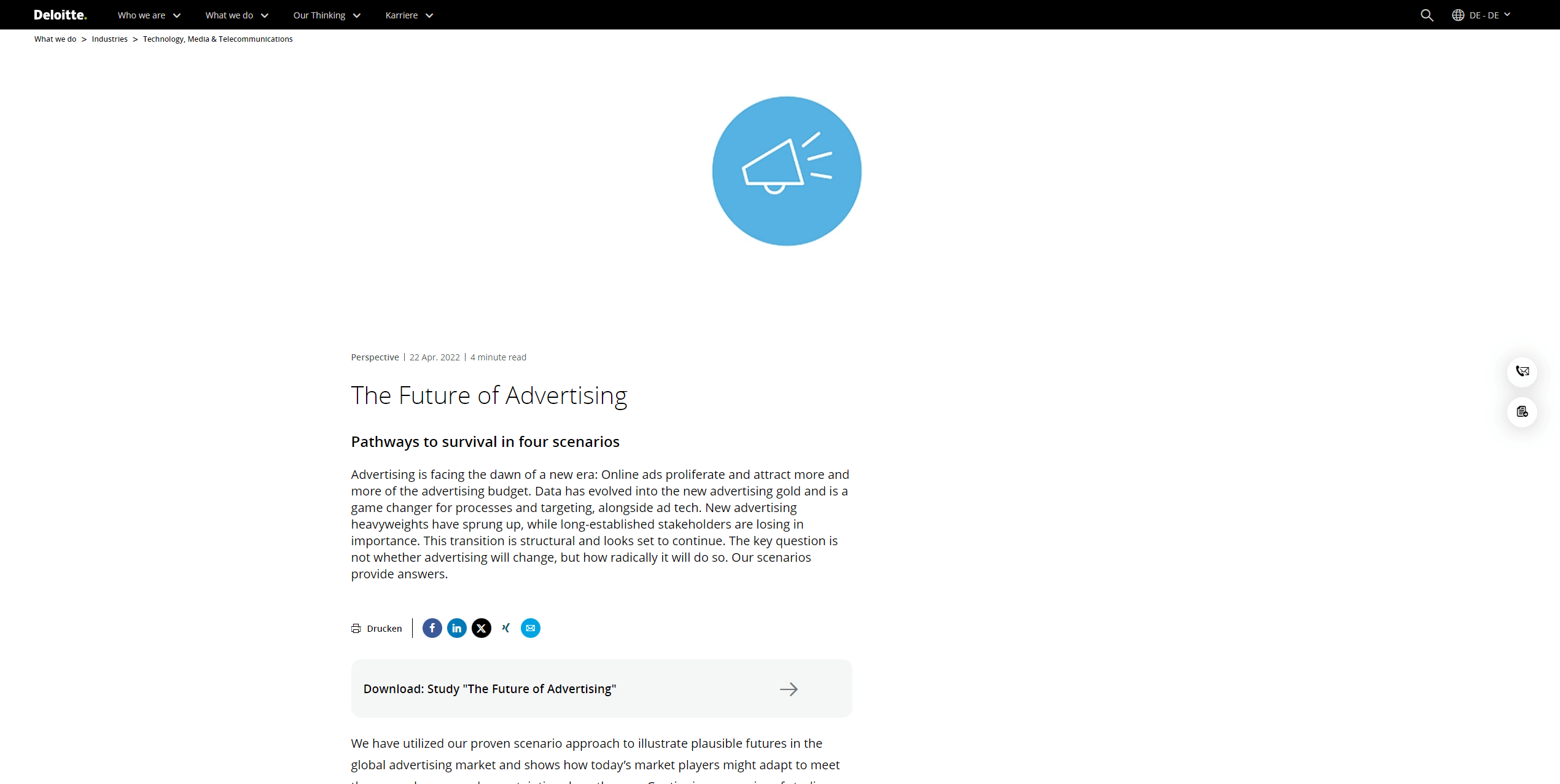The Future of Countertop Advertising: A Paradigm Shift in Countertop Digital Marketing
The #1 prediction of the future of countertop advertising is that it will be dominated by personalized, interactive experiences driven by augmented reality (AR) and artificial intelligence (AI) to help customers visualize and select products tailored to their preferences. The future of advertising and affiliate networks is full of exciting possibilities, but it will also require adaptability and innovation from all players involved. AI and machine learning will make campaigns smarter and more efficient, while personalization will become the key to consumer engagement. At the same time, advertisers and affiliates must navigate the challenges of data privacy, shifting toward more transparent and ethical practices.
- Artificial Intelligence and Machine Learning: Driving Smarter Campaigns
- Personalization: The Future of Consumer Engagement
- Data Privacy and Ethics: A Growing Concern
- The Rise of Micro-Influencers and Niche Communities
- The Expansion of Omnichannel Marketing
- What Will Be the Next Era in Countertop Advertising
- What Will Be the Future of Countertop Advertising? Death or Prosperity?
- What Will Countertop Advertising Look Like Potentially in 2030?
If you are a countertop company looking for help with marketing and SEO, Contact Profitworks for professional services in the countertop industry.
1) Artificial Intelligence and Machine Learning: Driving Smarter Campaigns

Source: Cosentino
Deep Learning and the use of artificial intelligence in advertising are becoming almost ubiquitous and the affiliate networks industry is no exception. As the mentioned technologies advance rapidly, the process of how marketers address the audiences, adjust campaign strategies, and determine effectiveness will shift significantly.
In the future, AI will make good campaigns that will place successful ads on the right platform at the right time to the right person. Ad platforms such as Google, Facebook, Bing Ads, Bidvertiser, AdRoll, BuySellAds and ROIADS.co are all either using AI to understand users’ habits and their potential purchasing tendencies or working to implement AI shortly. This will go a long way in improving the algorithms in their quest for a more efficient and highly effective ad placement.
AI algorithms running in affiliate networks will help to refine tracking of user behaviour across various channels and will enable affiliates to see how exactly they attract visitors and result in conversions.
2) Personalization: The Future of Consumer Engagement

Source: Cambria
As countertop companies increasingly leverage digital screens—televisions, tablets, desktops, and smartphones—to engage with consumers, the demand for personalized marketing will continue to grow. Future countertop advertisements will focus on tailoring content to meet the individual preferences of consumers, aligning with their specific needs and desires when selecting materials, designs, and finishes.
In this landscape, affiliate networks will evolve, shifting their focus from just product placements to creating content that speaks directly to the interests and buying behaviours of their audience. Powered by artificial intelligence, these networks will deliver highly personalized propositions that match consumer habits, preferences, and past interactions with the brand.
For countertop marketers, personalization will pair with dynamic creative optimization (DCO) to deliver customized ad creatives that adjust in real time based on the viewer's profile. In the near future, this could mean personalized video ads showcasing recommended countertops or influencer collaborations that dynamically change based on audience engagement. This level of personalization will help companies connect more deeply with potential customers, enhancing the decision-making process.
3) Data Privacy and Ethics: A Growing Concern

Source: Profitworks
While AI and personalization offer incredible opportunities, they also raise concerns about data privacy. As regulations like the General Data Protection Regulation (GDPR) in Europe and the California Consumer Privacy Act (CCPA) in the U.S. take hold, data privacy is becoming a more significant factor in advertising and affiliate marketing.
In the future, brands and affiliates will need to find a delicate balance between personalization and data privacy. Consumers are becoming more aware of how their data is being used and are demanding more control over their information. Transparency will be essential for both advertisers and affiliate networks moving forward. Brands that can build trust by handling data ethically and providing clear, transparent value exchanges with consumers will thrive.
Affiliate networks, in particular, will need to adapt to stricter regulations and increased scrutiny. This means more emphasis on first-party data, where brands and affiliates collect information directly from their users rather than relying on third-party data sources. The role of consent management platforms (CMPs) will also grow, as these tools help businesses comply with privacy laws by obtaining and managing user consent effectively.
4) The Rise of Micro-Influencers and Niche Communities
Influencer marketing has become a critical strategy for countertop companies, but the future is leaning toward micro-influencers. While large-scale influencers with millions of followers once dominated the scene, micro-influencers—those with smaller, highly engaged audiences—are proving to be more effective at driving conversions and generating interest in specific products. These influencers tend to have deeper, more authentic connections with their followers, which makes them ideal partners for countertop brands looking to establish trust and connect with a more targeted audience.
As influencer marketing becomes increasingly democratized, countertop companies will begin to partner more with micro-influencers who have a genuine passion for home design, renovation, and DIY projects. These influencers can authentically promote countertop materials, styles, and installation tips that resonate with their communities. In turn, affiliate networks will provide tools and platforms that allow these smaller influencers to easily promote products, share unique content, and earn commissions.
With this shift toward smaller but highly engaged audiences, even influencers with just a few thousand dedicated followers will play a key role in affiliate marketing programs. By targeting niche communities that share an interest in home improvement or interior design, countertop companies can reach customers who are more likely to engage and make purchasing decisions based on recommendations from influencers they trust. This personalized and community-driven approach will help brands stand out in a crowded market while building long-lasting customer relationships.
5) The Expansion of Omnichannel Marketing
As consumer journeys become more complex, the future of countertop advertising will increasingly rely on omnichannel marketing strategies. Today’s consumers engage with brands through a variety of touchpoints—social media, websites, emails, in-store visits, and more—and countertop companies must create a seamless, unified experience across these channels. Whether a potential customer is browsing countertop materials on a website, viewing an Instagram post about new designs, or visiting a showroom, they expect a consistent and personalized experience.
To meet these expectations, countertop companies will need to integrate their marketing efforts across all platforms. This means offering a cohesive brand message and providing a unified experience, regardless of the channel a customer interacts with. Affiliate networks will play a key role by providing omnichannel tracking capabilities that allow brands to follow consumers across devices and platforms, ensuring that no touchpoint is overlooked.
By gaining a more complete view of the customer’s journey, countertop companies can optimize their marketing strategies, improving targeting and customer engagement. This holistic approach will enable brands to build stronger relationships with customers and ultimately drive better conversions, as they’ll be able to engage customers with relevant content at each stage of the decision-making process.
6) What Will Be the Next Era in Countertop Advertising

Source: Natural Stone City
The next era in countertop advertising will be marked by the convergence of cutting-edge technologies, personalized content, and immersive customer experiences. With the rapid advancements in augmented reality (AR) and artificial intelligence (AI), the way customers interact with countertop products will shift dramatically. Consumers will expect more interactive and customizable experiences, such as being able to visualize different countertop designs and finishes in their own homes before making a decision.
Key trends shaping the next era of countertop advertising include:
- Augmented Reality (AR) Integration: Consumers will be able to use their smartphones or AR glasses to see how countertops fit into their kitchens or bathrooms, bringing the product experience directly into their homes.
- AI-Powered Personalization: AI will help brands deliver personalized content and product recommendations based on consumers' browsing history, preferences, and purchase behaviours.
- Interactive Digital Content: Countertop companies will create digital ads that customers can engage with, such as 360-degree product views, design simulators, or virtual consultations.
- Targeted Messaging: Advanced data analytics will enable countertop brands to send tailored messages across various platforms, ensuring that consumers receive relevant information at the right time in their decision-making process.
This new era of countertop advertising will place a greater emphasis on creating engaging, consumer-centric experiences that blur the lines between digital and physical shopping.
7) What Will Be the Future of Countertop Advertising? Death or Prosperity?

Source: AudienceX
Countertop advertising is poised for significant prosperity in the future as it adapts to new technologies and shifting consumer behaviours. While some traditional methods of advertising may fade in effectiveness, the demand for interactive, personalized experiences will continue to grow. The key to success will be in embracing new advertising strategies, such as influencer partnerships, AR experiences, and omnichannel marketing.
Factors contributing to the future prosperity of countertop advertising include:
- Evolution of Digital Advertising: Traditional TV ads and print media will be overshadowed by more interactive and targeted digital campaigns, reaching customers through social media, websites, and AR platforms.
- Influencer and Micro-Influencer Marketing: As micro-influencers gain prominence, countertop companies will increasingly collaborate with influencers who have highly engaged, niche audiences, fostering trust and authenticity in their messaging.
- Data-Driven Campaigns: With AI and big data, brands will be able to create hyper-targeted campaigns, offering consumers personalized product recommendations and content based on their browsing habits and preferences.
- Omnichannel Experiences: Countertop brands will ensure a consistent brand presence across multiple platforms, allowing consumers to interact with the brand seamlessly whether they are browsing online, visiting showrooms, or engaging through social media.
By adapting to the changing digital landscape and focusing on consumer-driven content, countertop advertising will remain relevant and thrive in the coming years.
8) What Will Countertop Advertising Look Like Potentially in 2030?

Source: Deloitte
By 2030, countertop advertising will be characterized by immersive, highly personalized experiences powered by artificial intelligence (AI), augmented reality (AR), and possibly even virtual reality (VR). The lines between digital and physical shopping will continue to blur, with customers experiencing countertops in ways that are interactive and tailored to their specific needs and tastes. As a result, countertop companies will need to embrace these technologies to stay competitive and deliver more engaging, efficient advertising campaigns.
In 2030, we can expect:
- Immersive AR and VR Experiences: Customers will be able to visualize, customize, and interact with countertops in a fully immersive virtual space, using VR headsets or AR apps on their phones. This will allow them to explore different materials, colours, and designs in a lifelike, interactive environment.
- Hyper-Personalized Advertising: AI will be able to predict customers' needs based on their online behaviour, offering real-time, tailored recommendations for countertops that fit their personal style, budget, and space requirements.
- Voice-Activated Shopping: With the rise of voice-activated devices like smart speakers, consumers may be able to ask for countertop recommendations and explore product options via voice commands, further enhancing the shopping experience.
- Omnichannel Integration: Countertop brands will ensure a seamless experience across all touchpoints, from social media to physical showrooms, with integrated advertising that moves effortlessly between channels. This means customers can start their journey online and seamlessly transition to in-person visits or purchases.
- Smart Homes and Countertop Integration: As homes become smarter, countertop advertising could integrate with other smart home systems, offering consumers instant updates or promotions for countertop products based on their home renovation projects.
By 2030, countertop advertising will likely be an entirely different landscape, where brands will use the latest technology to create dynamic, immersive, and deeply personalized shopping experiences for every customer.
